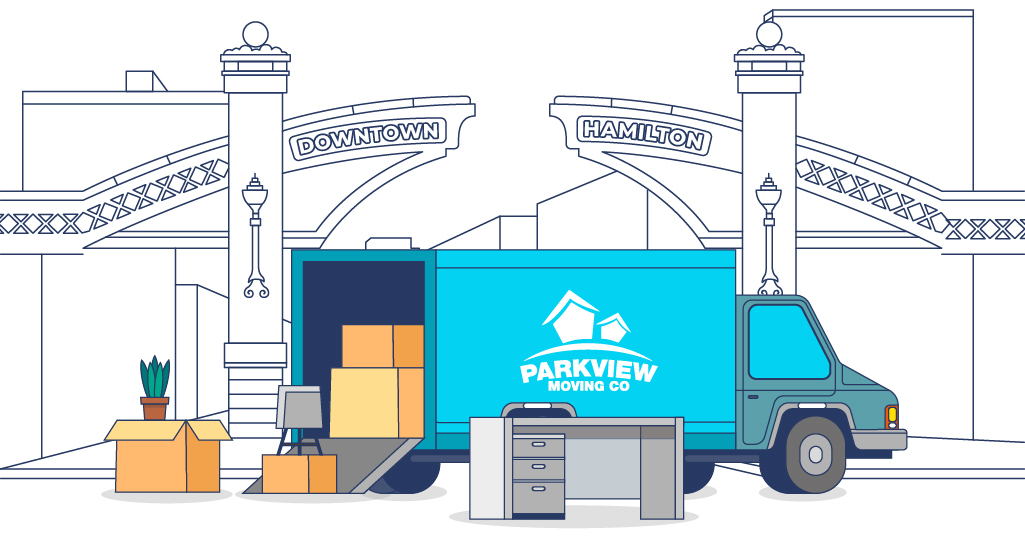
Moving doesn’t have to mean generating excessive waste. With a little planning and effort, you can make your move greener while saving money and resources. In this blog, we’ll explore practical Eco-Friendly Moving Tips to help you reduce waste and your overall environmental footprint during the process.
Plan Ahead with Eco-Friendly Moving Tips for a Sustainable Move
The first step toward an eco-friendly move is research and planning. Decluttering your home before the move helps reduce the number of items you’ll need to pack and transport. Donate, sell, or recycle items you no longer need instead of tossing them. Local charities, thrift stores, and online marketplaces are great options for finding new homes for your belongings. Check out our blog posts on decluttering before a move and where to donate items in Ontario for more info!
Sustainable Packing Materials for Eco-Friendly Moves
One of the largest sources of waste during a move comes from packing materials. To minimize your impact, opt for alternatives to single-use supplies:
- Use What You Already Have: Household items like towels, blankets, and clothing can double as protective layers for fragile items.
- Borrow or Rent Bins: Reusable plastic bins are a sturdy and eco-friendly alternative to cardboard boxes. Some moving companies even offer them as part of their service.
- Source Second-Hand Boxes: Check with local businesses, neighbors, or community groups for gently used boxes to give them a second life.
For securing your belongings, consider biodegradable packing tape and cornstarch-based packing peanuts instead of traditional materials.
Pack Strategically for an Eco-Friendly and Zero-Waste Move
Reducing the number of trips taken during your move directly lowers your carbon footprint. Consolidate items and pack efficiently to maximize space in your moving vehicle. For larger or long-distance moves, consider shared load options where multiple households share a single truck. This minimizes the environmental impact while also potentially lowering costs.
Dispose of Unwanted Items Responsibly During an Eco-Conscious Move
Moving often leads to uncovering items that need to be discarded. Instead of sending them to a landfill, consider these alternatives:
- Recycle: Electronics, batteries, and old furniture may be eligible for recycling at local facilities. Research your area’s recycling centers to find the best drop-off locations.
- Donate: Clothing, books, and household goods can be donated to charities or shelters.
- Compost: Organic materials like yard waste or old food can often be composted instead of trashed.
For hazardous items, such as paint or chemicals, ensure they are disposed of properly at designated collection sites.
Energy-Saving Tips for an Eco-Friendly Moving Day
During moving day, take steps to conserve energy and resources:
- Turn off lights and appliances as you clear out rooms.
- Use natural daylight wherever possible instead of artificial lighting.
- If you’re renting a truck, choose a fuel-efficient model.
Upon arriving at your new home, prioritize installing energy-efficient appliances and LED lighting to make your household greener right from the start.
Unpacking Responsibly After an Eco-Friendly Move
Once you’ve completed your move, it’s important to unpack responsibly. Save any reusable packing materials, such as plastic bins or bubble wrap, for future use. You can also pass them along to friends, family, or local community groups who might need them.
Recycle anything that isn’t reusable, including cardboard boxes and paper wrapping materials. Many cities offer curbside recycling for these items, making it easy to dispose of them responsibly.
Embrace a Greener Lifestyle After Your Move
Moving into a new home provides the perfect opportunity to embrace eco-friendly practices for the long term:
- Reduce Energy Consumption: Consider installing solar panels, energy-efficient windows, and programmable thermostats.
- Start Composting: Set up a compost bin for food scraps to reduce household waste.
- Conserve Water: Install low-flow faucets and toilets to cut back on water usage.
By establishing sustainable habits early, you can significantly reduce your environmental footprint while settling into your new home. Moving is the perfect time for a fresh start!
Why Eco-Friendly Moving Tips Matter
Reducing waste during your move isn’t just good for the planet – it’s good for you too. By reusing materials, packing efficiently, and disposing of items responsibly, you can save time, money, and stress. Adopting eco-friendly practices sets a positive example for friends, family, and your new neighbors.
Moving doesn’t have to be wasteful. With these Eco-Friendly Moving Tips, you can reduce your environmental impact while ensuring a smooth transition to your new home. Small changes, like reusing packing materials and consolidating trips, can make a big difference for the planet – and for your wallet.
If you’re planning a move, contact Parkview Moving today to learn more about how we can help you move sustainably and responsibly.






